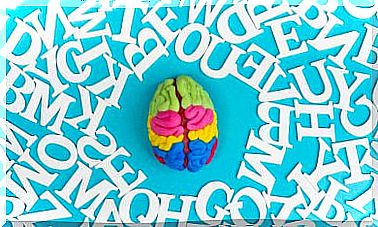Self-transcendence, The Value Of Going Beyond One’s Own Self

Self-transcendence is a concept that is intimately linked to spirituality and that has gained popularity in recent decades. Although it is considered a complex characteristic of our personality and each of us may have a different conception of it according to their values, it is true that there is a general idea underlying this term.
In essence, self-transcendence means transcending the self (rising above the self), that is, going beyond our own identity and understanding that we are a small part of a larger whole and acting accordingly. A complex phenomenon that is in tune with the vision of oneself as an integral part of the universe.
Self-transcendence and spirituality
Self-transcendence and spirituality are intimately connected. In fact, one of the inherent qualities of self-transcendence is the expansion of consciousness beyond the self, that is, towards something higher, more complex and infinite that is usually divine or spiritual in nature.
Some people achieve self-transcendence through their faith in God, while others can achieve it through the recognition of some kind of spirituality or idea about the soul. In one way or another, these types of beliefs and conceptions help people find the meaning that will drive them to transcend.
According to Austrian psychiatrist Viktor Frankl, transcendence is rooted in our spirituality, and spirituality is the part of humanity that separates us from all other species. You cannot become a fully realized and “complete” person until you are able to transcend yourself, to understand your place in the higher order of things.
Thus, it should be noted that, although today’s researchers generally do not adhere to the idea that spirituality is a necessity to achieve self-transcendence, for many it is a significant aspect of it.
Abraham Maslow and self-transcendence
For many years, self-actualization dominated Maslow’s famous hierarchy of needs. In fact, in his early works, Maslow considered self-actualization to be the pinnacle of human development, being the greatest human need.
In fact, self-actualization is a lofty goal worthy of development that should not be neglected. However e l real goal, the “next level” of development should be self – transcendence: a goal that focuses on others instead of focusing on oneself; that refers to higher goals than those that focus on self-interest.
According to the psychologist Abraham Maslow, “transcendence refers to the highest and most inclusive or holistic levels of human consciousness, behaving and relating, as ends rather than as means, for oneself, for others, for human beings in general, to other species, to nature and to the cosmos ”.
In this sense, self-transcendence provides the individual with what Maslow called peak experiences, those in which personal concerns are transcended to observe what happens from a broader and higher perspective. These are experiences that often generate strong positive emotions such as joy or peace and a well-developed sense of awareness.
It is important to mention that Maslow’s incorporation of the concept of self-transcendence into the pyramid is not always named when his theory is cited. However, little by little, it is beginning to be considered by the research community.
Reed’s theory of self-transcendence
Pamela Reed defines self-transcendence as the expansion of self-conceptual limits in a multidimensional way. According to this theory, people can be considered open systems whose only obstacle between them and self-transcendence is the limit they impose on themselves.
Of course, human beings need some conceptual limits, but the expansion of these limits outwards causes a state of greater connection with the environment, in addition to fostering a sense of wholeness, which could not otherwise be obtained.
Reed’s theory posits that self-transcendence is a natural and desired developmental stage that people must achieve in order to feel satisfied and have a sense of purpose. Thus, one of the main ways that self-transcendence can affect the end-of-life experience is through spirituality.

Self-Transcendence and Personality: Cloninger
As we have seen, self-transcendence is a personality trait associated with the experience of spiritual ideas. As such, self-transcendence is one of the dimensions of personality assessed in the Cloninger Character Inventory.
In Cloninger’s seven-dimensional personality model, there are four dimensions of temperament that have a strong biological basis and three dimensions of learned character that are believed to be concept-based. Self-transcendence is a character trait related to the experience of the spiritual aspects of the self. According to Cloninger, it can be described as acceptance, identification or spiritual union with nature and its origin.
How to achieve self-transcendence
Achieving self-transcendence is not an easy path, since it represents the highest stage of human development, beyond the self-realization that Maslow raises. However, there are a few things we can do to boost its development. In this sense, Stephanie Flood proposes five creative ways to achieve self-transcendence inspired by Buddhism:
- Explore basic meditation techniques (even if you are an experienced meditator).
- Empower yourself with knowledge and wisdom to build awareness.
- Don’t be afraid of the journey, spiritually or physically, to find an idea.
- Finding your own spiritual techniques that bring you closer to the higher purpose and the ideal self.
- Increase vibrations, living in a positive environment conducive to transcendence.
On the other hand, we cannot ignore the values that Viktor Frankl pointed out to experience self-transcendence in everyday life. These values, which can be implemented by people of different cultures, are the following:
- Creative value: giving something back to the world. This value implies deliberately engaging in productive work creatively. It means bringing unique talent and creative ideas to whatever work we do to produce some value either to society or to make a difference in the world.
- Experiential value: receiving something from the world with gratitude. Experiential value involves appreciating the loving relationships and beauty around us.
- Attitudinal value: take a position towards destiny. Attitudinal courage implies the defiant power of the human spirit in facing adversity with courage or moral fortitude. The stoic attitude of maintaining dignity and integrity in the face of danger and hardship is the last line of defense to extract a sense of freedom and meaning.
Chinese psychologist Paul Wong explains that when we go out of our own interest to serve something greater than ourselves, we are practicing self-transcendence. We become our best selves only when we become selfless and caring-oriented.
Thus, regardless of our religious beliefs, self-transcendence represents a form of spiritual life, one that satisfies our deepest spiritual needs for connectivity and transcendence.









